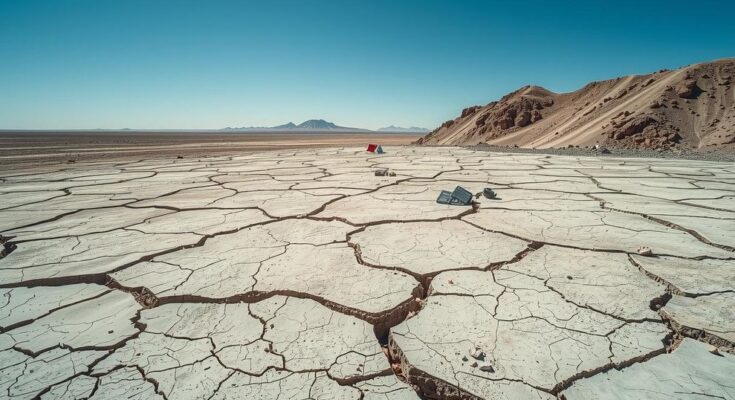*We Live Here*, a documentary by Zhanana Kurmasheva, explores the legacy of a former Soviet nuclear test site in Kazakhstan, focusing on three generations facing its aftermath. Premiering at CPH:DOX, the film highlights personal stories amid broader existential themes. It aims to raise awareness about environmental issues while seeking validation for the Central Asian documentary community.
The documentary We Live Here, directed by Zhanana Kurmasheva, explores the enduring impacts of a former Soviet nuclear test site in Kazakhstan. Set to premiere at the Copenhagen International Documentary Film Festival (CPH:DOX), the film examines three generations confronting their past while striving for survival. The narrative emphasizes the haunting legacy of 456 nuclear tests conducted at the Semipalatinsk site from 1949 to 1991, with a poignant story of a couple seeking proof of radiation’s role in their daughter’s illness.
The steppe of Kazakhstan serves as a metaphor for the global environmental struggles, with Kurmasheva’s cinematic approach elevating the film’s existential themes. With this being the first Kazakh film in the CPH:DOX festival, it competes among twelve international entries for the Dox:Award, spotlighting important regional narratives.
Kurmasheva acknowledges the saturation of narratives around the nuclear testing issue in Kazakhstan, noting that locals are tired of discussing it without tangible outcomes. However, she feels a personal connection to the story through her mother’s heritage. The filmmaker reflects on the psychological impact of the desolate area, highlighting the need for emotional expression in a culture that often suppresses feelings.
Moreover, the documentary embraces a broader message about humanity’s potential to cause its own destruction while acknowledging that the Earth may outlast its inhabitants. Ramazanova, the film’s producer, expresses the significance of this project for the Central Asian documentary community, revealing the importance of gaining international recognition to validate local efforts.
In a forward-looking statement, the producers are already developing a second feature focusing on ecological issues related to mass consumerism, emphasizing the journey of a T-shirt from its production to its impact on the environment. The narrative relevance of We Live Here intertwines with contemporary discussions about nuclear armament in post-Soviet countries, signaling a cyclical pattern in human history.
The film, originally titled Atameken (meaning “My Sacred Land”), underscores the deep-rooted connection locals have to the irradiated land, which they consider sacred, despite its dark history. Kurmasheva concludes by asserting the unique attachment individuals have to their land and the shared responsibility to care for the Earth, which serves as the only home for humanity.
In summary, *We Live Here* is a significant cinematic exploration of the enduring repercussions of nuclear testing in Kazakhstan. Directed by Zhanana Kurmasheva, the film not only addresses the personal stories of those affected but also reflects a broader existential narrative. As a milestone for the Central Asian documentary community, it emphasizes the importance of recognizing local stories on an international stage while advocating for environmental awareness. By fostering conversations about the past and present, *We Live Here* serves as a poignant reminder of humanity’s responsibilities towards the Earth and each other.
Original Source: www.hollywoodreporter.com




